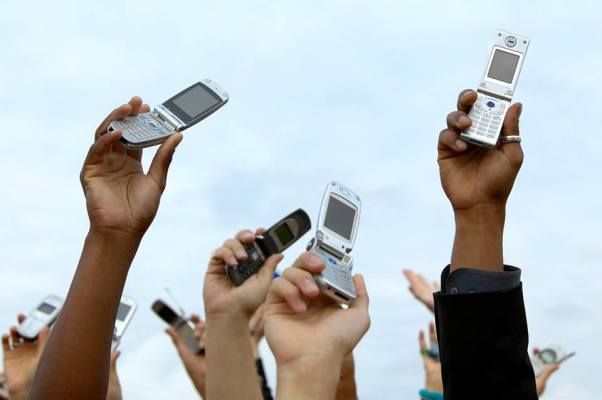Smartphones have become so commonplace in developed countries that it can be hard to imagine life without them. But the worldwide Internet penetration rate is just 39%, according to the International Telecommunication Union, and in Africa, only 16% of people are online. Mobile-cellular penetration rates are 89% in developing countries, however, with many people relying on their phones for online access. As more organizations use Internet surveys to conduct research into subjects ranging from product preferences to human rights, GeoPoll‘s platform seeks to help them to reach people on featurephones or even more basic devices.
Developed by Mobile Accord, GeoPoll, which says it is the world’s largest real-time mobile survey platform, enables companies to conduct surveys by SMS, voice messages or on the Web. It launched today with a $6.6 million Series A round, which brings its total raised so far to $11.6 million.
GeoPoll will use proceeds from its Series A to expand its team and grow its footprint, with the goal of reaching 100 million people by the end of 2013, and 500 million by the end of 2014, says Steve Gutterman, president of Mobile Accord. The company also developed mGive, a mobile donation platform.
GeoPoll’s database currently has more than 50 million mobile users in 20 countries. Its platform leverages partnerships with telecom providers that Mobile Accord has been establishing for more than 10 years, as well as working with local groups. GeoPoll has already been used to gather market insights on “media habits, food security, finance and a variety of other topics of interest to organizations that have activity or interests in the developing world,” Gutterman tells me.
“In most parts of the developing world, we use SMS surveys because Internet connectivity is extremely low,” he says. “Our technology allows two-ways communication in real-time, and uses pinpoint targeting to determine location-based on the cell tower a mobile phone connects to most frequently.”
Organizations that have already used the platform to conduct research include the United Nations, which used GeoPoll to help complete its MY World global survey. GeoPoll gathered 130,000 votes for the campaign in countries such as Ghana, Madagascar and Tanzania. Company says GeoPoll brought in 13% of total responses within weeks. It is also currently being used by the World Food Programme in GeoPoll’s first large-scale survey to assess access to nutrition in regions within the Democratic Republic of the Congo.
“The World Bank was gathering insights in the Democratic Republic of the Congo, and had spent $3.5 million and 18 months to gather surveys from 2,500 people. We surveyed over 100,000 people in a single day for for a fraction of the cost,” says Gutterman.
In addition to non-profits and NGOs, GeoPoll can also help companies develop marketing strategies in emerging markets.
“A major soft drink company used GeoPoll to gather data on consumer preferences in Tunisia. The uncovered a number of findings on brand loyalty, consumption habits and purchasing habits, broken down by gender and location.”
Mobile Accord says that one the advantages of its platform and carrier partnerships is that GeoPoll can be quickly adapted to areas with different geographical, economic and social conditions.
“Our size and breadth allows us to provide market intelligence that is more granular and more iterative than our competitors,” says Gutterman. “We can drill into specifics like gender, age, location and other factors. And we can run surveys on a quarterly, monthly, even daily basis. These dynamics of transformative, and increase our customers’ understanding of the markets that matter most to them.”
